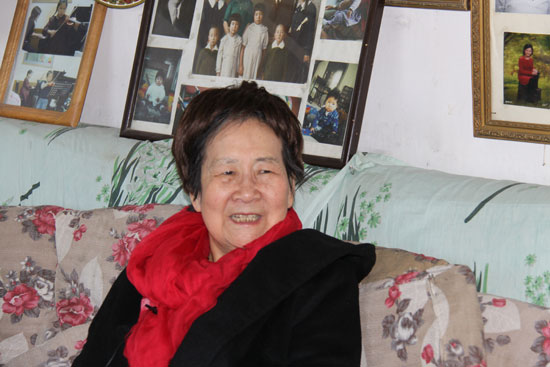Wen Jieruo: Mo's Nobel shows importance of translation
- By Zhang Rui
 0 Comment(s)
0 Comment(s) Print
Print E-mail China.org.cn, December 8, 2012
E-mail China.org.cn, December 8, 2012
As China's Nobel literature winner Mo Yan just went to Stockholm to pick up his award, one legendary Chinese translator spoke of how his winning proves the importance of translation in Beijing on Wednesday.
|
|
|
Wen Jieruo talks to China.org.cn in Beijing, Dec. 5, 2012. [China.org.cn] |
"How could Mo Yan win? Aside from his own great writing, the translators played a great role in this," said Wen Jieruo, the 85-year-old veteran translator, "When the translation came out, people loved it, and more came out. Once the world got to know more about Mo's works, the Nobel eventually had to recognize him as well.
Mo Yan's main translators include Howard Goldblatt for the English editions and Anna Gustafsson Chen for the Swedish ones.
When talking about Mo's winning, Wen Jieruo felt sorry for her close friend Ba Jin, who is considered to be one of the most important and widely read Chinese writers of the 20th century.
"He wrote 'A Garden of Repose' and 'Cold Night' before 1949, both of which were translated into French. If he had had the opportunity to write more, he too could have won a Nobel Prize. After 1949, he was no longer able to write anything like that due to the political environment," Wen said.
Before her exclusive interview with China.org.cn, Wen had just finished writing an article entitled "Read books every day, enjoyment never ends." In the piece, Wen cited some criticism from newspaper Wenhui Daily against Mo which read how some of the Nobel laureate's later works show "craziness and violence of language and cynicism in spirits, which are furious but lack depth."
"The fact that Mo Yan won the award doesn't mean you have to praise him as the Almighty Lord, no, they merely pointed out his shortcomings," Wen said, "I met Mo Yan twice, I felt that he is a very humble man. Both times I met him, Kenzaburo Oe was there as well - an admirer of Mo's. But Kenzaburo Oe doesn't like Haruki Murakami."
Haruki Murakami, a major writer once deemed the strongest contender for this year's Nobel besides Mo, also hasn't won over Wen.
"I think the Nobel committee made the right choice," Wen said, "I once read Haruki Murakami's 'Norwegian Wood,' and my only comment is it can be summarized as 'eat, drink and have sex,' I heard this book sells 400,000 copies in China?and young people love it. This is just too bad; I think we should give students some guidance. I read it in one day, 10 hours, and was done with it."
Wen herself has rendered a great number of Japanese literary works into Chinese in almost five decades, including 14 novels, 18 novellas as well as over 100 novelettes. Such outstanding Japanese writers as Yasushi Inoue, Yasunari Kawabata, Tsutomu Mizukami and Yukio Mishima became popular in China due to Wen's translation.
The old lady has a long list of works to her credit, including "Saint of Mt. Koya" (included in the book series Selected Novels of Kyoka Izumi), "Selected Novels of Ryunosuke Akutagawa," and "Ulysses" by James Joyce, a masterpiece translated by Wen and her husband Xiao Qian, another huge Chinese writer and translator. She received the Lifetime Achievement Award in Translation at the Second National Translation Conference in Beijing on Dec. 6, 2012.
Coming back to Mo Yan then, Wen simply hoped history will not repeat itself in terms of the tragedy that struck Yasunari Kawabata. She believed?the Japanese author simply could not bear the media frenzy that ensues his winning of the Nobel Prize for Literature in 1968 and in 1972 he decided to take his own life.
"I hope the Chinese media don't bother Mo and let him continue writing. I believe he will also humbly accept his older fellows' suggestions for his own creations."






